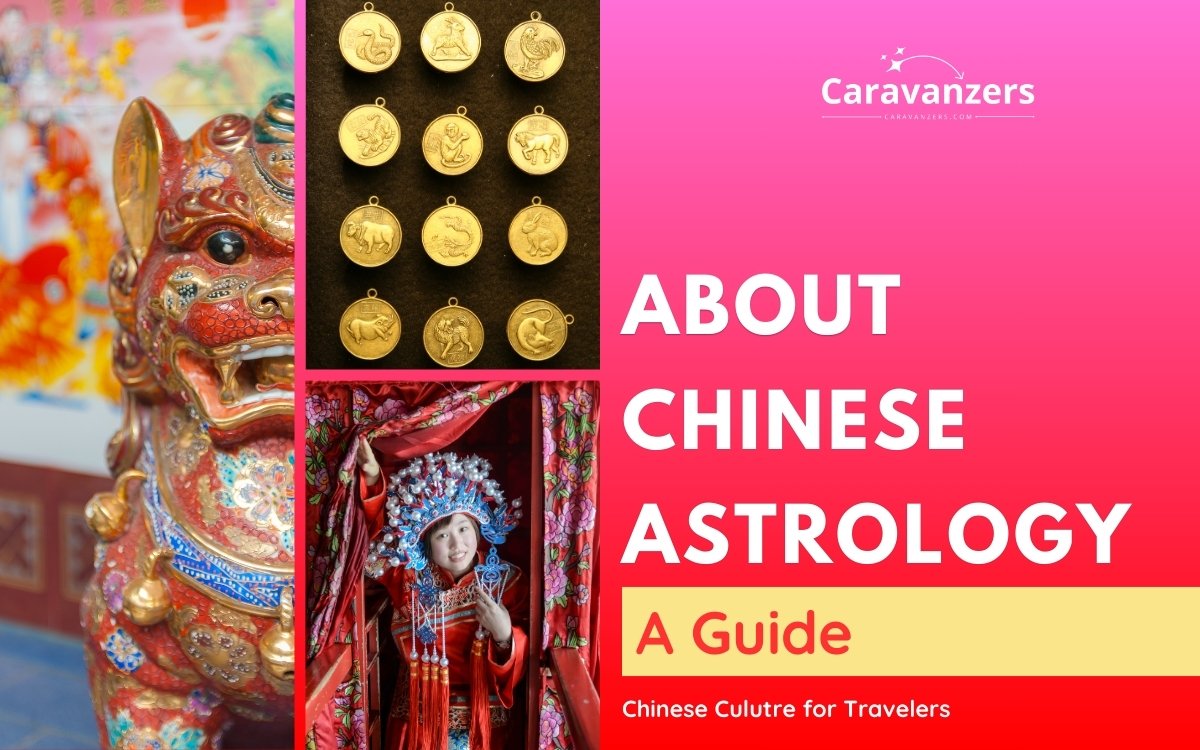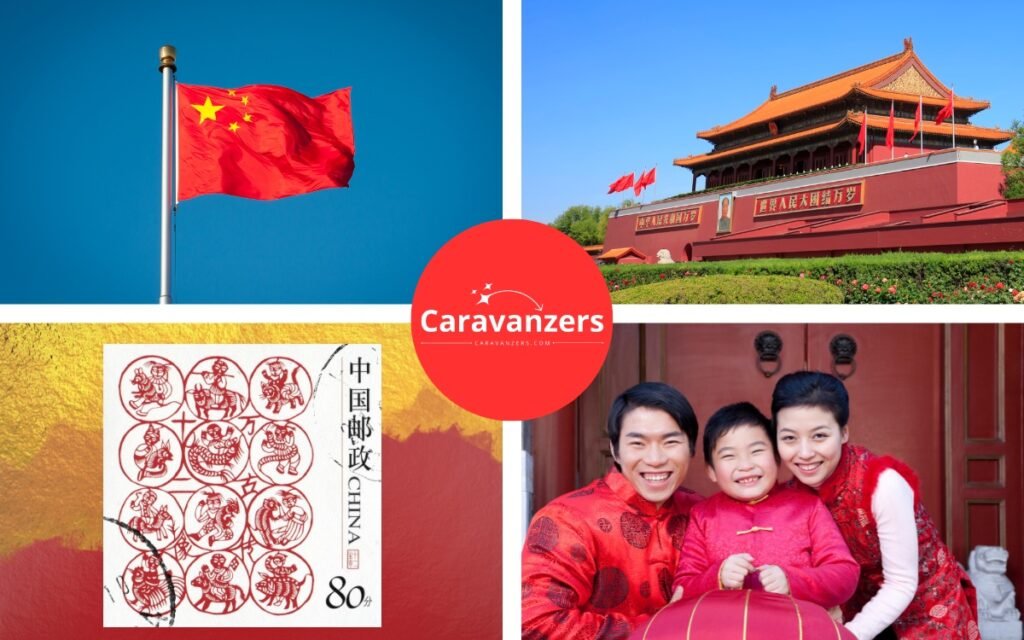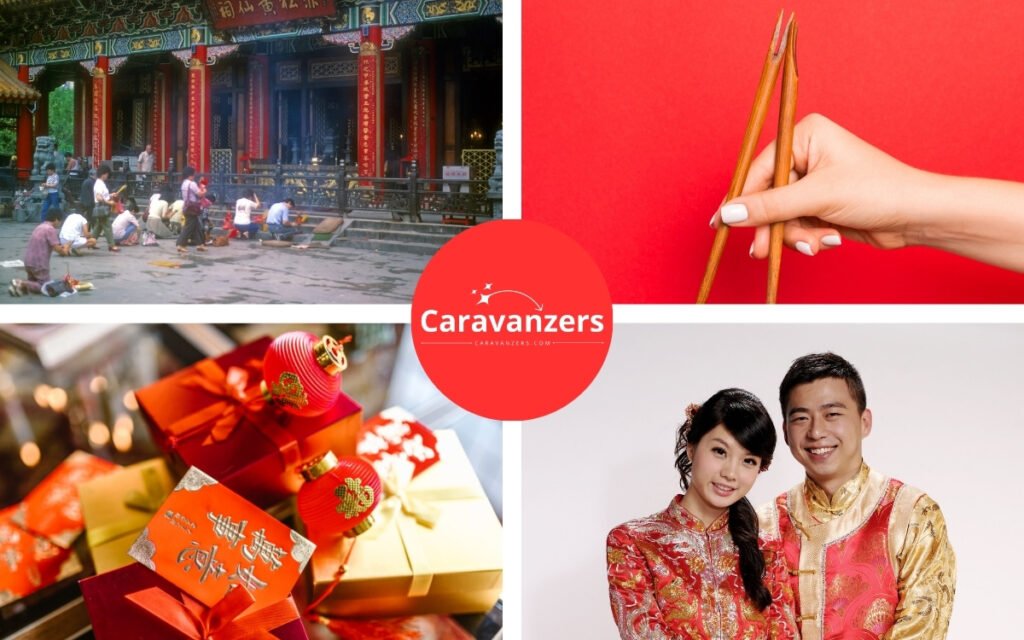
Chinese astrology guide. Learn about its history, the zodiac, popular pairings, and so much more for your trips to Asia.
Travelers to China will immediately realize that Chinese people have a different calendar, zodiacs, and more.
Like Western people, the Chinese are obsessed with horoscopes, planetary secrets, and all that jazz.
There are popular media organizations that benefit from it online and offline alike, and it has spread to non-Chinese areas.
Today, Chinese Astrology is popular not just in Chinese circles but also in other parts of Asia, including Japan, South Korea, and more.
In this guide, I will describe its basic tenets, the zodiac, and how it influences life for the person and even society.
Let’s get started.
Chinese Astrology

Chinese Astrology is deeply rooted in ancient philosophy, and it influences everything from architecture to more.
Basically, it revolves around a 12-year cycle, each year associated with an animal sign.
These signs play a significant role in shaping individuals’ personalities and destinies, and the system also incorporates elements for a more intricate profile.
People believe their birth year influences character traits, relationships, and career prospects, guiding life decisions.
Chinese Astrology’s origins date back over 2,000 years, emerging from ancient Chinese philosophy.
Experts focus particularly on Confucianism and Taoism as possible roots, although the system lacks a single founder.
Meanwhile, Chinese Astrology differs from its Western counterparts in its focus on the lunar calendar, as well as on societal influences, incorporating a more communal perspective on destiny and character analysis.
Plus, Chinese Astrology is very much integrated into the mainstream culture, with families relying on it for many things.
For instance, Chinese families use astrological compatibilities to form marriages.
Chinese Zodiac
During every new year, non-Chinese people learn that Chinese Astrology has many interesting things.
For example, the zodiac includes a 12-year cycle, each year represented by an animal sign.
Rat, Ox, Tiger, Rabbit, Dragon, Snake, Horse, Goat, Monkey, Rooster, Dog, and Pig.
Plus, it incorporates five elements—Wood, Fire, Earth, Metal, and Water—creating a 60-year cycle.
That is, people are not only associated with an animal but also an element, shaping their personality traits and destiny.
For example, someone born in the Year of the Rat may be further classified based on the associated element.
A Rat born in a Wood year might possess traits like adaptability, while a Rat born in a Metal year could exhibit qualities of precision.
So, this dual classification creates a nuanced analysis and, as a result, gives you a more detailed insight into overall life.
The zodiac plays a pivotal role in cultural practices, guiding life decisions and cultivating a deeper understanding of the interconnectedness of nature and humanity.
Chinese Zodiac Pairings

Like its Western counterpart, Chinese Astrology has a lot of ways in which it guides people, including marriages.
For example, popular zodiac combinations often involve signs believed to have strong compatibility or complementary qualities.
Some well-regarded combinations include the following:
Rat and Dragon – These signs are thought to share a dynamic and energetic connection, fostering mutual understanding and success.
Ox and Snake – This pairing is often seen as harmonious, as both signs are considered diligent, patient, and supportive of each other.
Tiger and Horse – These signs are believed to complement each other’s adventurous spirit and passion, creating a vibrant and dynamic relationship.
Rabbit and Goat/Sheep – The gentle and peace-loving rabbit is thought to be compatible with the compassionate and artistic goat.
Monkey and Rooster – Both signs are considered intelligent and resourceful, leading to a harmonious and mutually beneficial partnership.
Dog and Pig – These signs are often seen as loyal and understanding, fostering a strong and supportive connection.
So, yeah, that gives you an overall picture of some of the more desired combinations.
Astrology and Food
Chinese Astrology influences food choices based on zodiac signs and their associated elements.
For example, people follow dietary recommendations to balance their energies, promoting well-being.
Think of it this way: someone born in the Year of the Fire Rooster might be advised to include cooling foods like cucumbers and melons.
Why?
To balance the fiery energy associated with their zodiac sign.
As a result, the person will do it in an effort to promote overall well-being and harmony.
Likewise, certain foods are considered auspicious for specific animal signs, connecting culinary traditions with astrological beliefs for a harmonious and prosperous life.
For instance, during the Lunar New Year, people born in the Year of the Rat might consume dishes like dumplings and spring rolls.
Why?
These dishes symbolize wealth and prosperity.
So, these are some ways it can influence food, but there are many other ways, too.
Astrology and Music
Chinese Astrology also influences cultural things like music. It does this by associating certain tones and melodies with specific zodiac signs and elements.
For instance, a musical composition aligned with the serene qualities of water and the contemplative nature of the Rat sign might incorporate flowing melodies and calming tones.
In this case, a musical piece is created because of the astrological attributes associated with that particular zodiac sign and element.
That is, musicians may compose or choose pieces aligned with astrological principles for many reasons.
For example, to enhance positive energies, evoke emotions, and create an atmosphere in line with individual or collective astrological influences for cultural and personal resonance.
Of course, some musicians may choose to launch albums or perform concerts during astrologically significant times.
In that case, they are aligning their music releases with favorable celestial influences.
This belief in timing aims to enhance the success and resonance of the music, contributing to a harmonious connection with the energies of the zodiac.
Desired Outcomes

In Chinese culture, the most desired outcomes often revolve around achieving harmony, balance, and prosperity in various aspects of life.
People seek positive connections with their animal signs and elements to enhance personal traits and navigate challenges successfully.
Additionally, favorable matches between individuals in relationships, compatibility with career choices, and overall well-being are valued outcomes.
The ultimate goal is aligning with the natural forces represented by the zodiac and elements to lead a fulfilling life.
For a Chinese person, this means having balance, positive energy, and prosperity in relationships, career, and personal development.
Chinese Astrology Facts
Non-Chinese people may find it surprising that Chinese Astrology is deeply integrated into various cultural practices and events.
For example, it influences decisions such as wedding dates and baby names.
The system’s pragmatic approach to guiding daily life decisions and its connection to traditional Chinese philosophy add layers of cultural richness to its significance.
Likewise, some people might be intrigued to know that Chinese Astrology is not solely focused on individual traits.
It also considers the broader societal impact of astrological cycles.
Similarly, non-Chinese people may find it intriguing that astrology not only influences personal decisions but also plays a role in shaping societal trends.
For instance, economic forecasts, political events, and cultural shifts are sometimes analyzed through the lens of astrological cycles.
In other words, this ancient practice has a pervasive influence on various aspects of Chinese life.
Study Chinese Astrology
For a deeper understanding of Chinese Astrology, non-Chinese people can look into books.
I recommend “The Handbook of Chinese Horoscopes” by Theodora Lau. This book has a lot of insights into animal signs, elements, and their combinations.
By the way, that book was originally published in the late 1970s and has since been updated several times.
Meanwhile, online platforms like Chinese astrology websites or forums can also be great interactive learning experiences.
Additionally, attending cultural events, visiting museums, and engaging with Chinese communities can offer practical insights.
Learning Mandarin can also give you a linguistic and cultural foundation, enhancing the understanding of Chinese Astrology in its native context.
Final Thoughts
Chinese people appreciate astrology for many reasons. For instance, there is the cultural significance guiding life decisions.
But it also nurtures a deeper understanding of oneself since it helps the person to know where they have weaknesses and strengths.
Plus, it gives people a framework for interpersonal relationships and societal trends.
So, in this guide, I described its history, the zodiac, and how it influences many things.
I hope you enjoy it!
Li Xiu Ying is a travel writer and is the author of Beijing Travel. She writes about China for Caravanzers.
Follow us on Pinterest.
